Year 3 Subtraction Worksheets
Add and subtract numbers mentally (A)
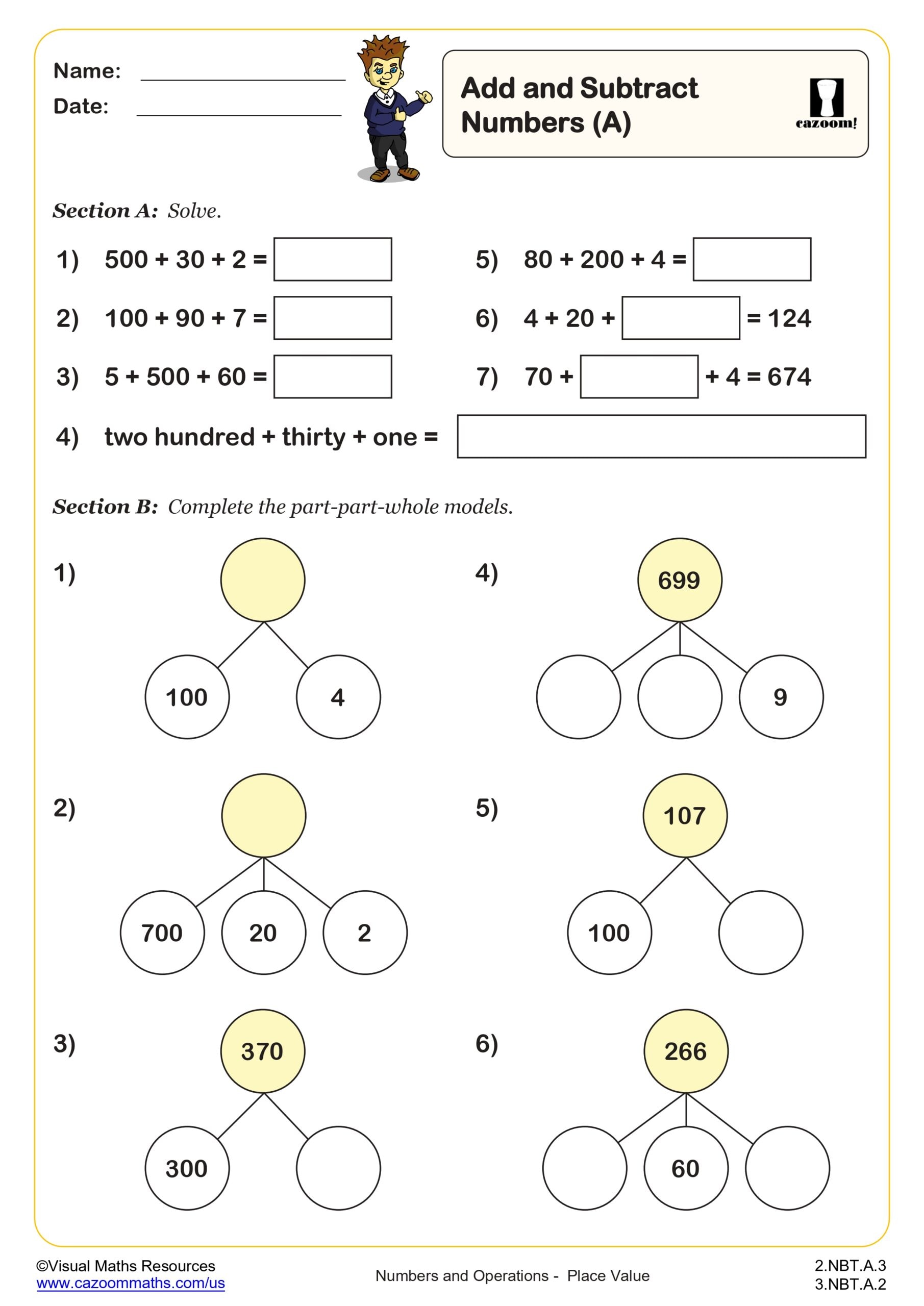
Column Subtraction (A)
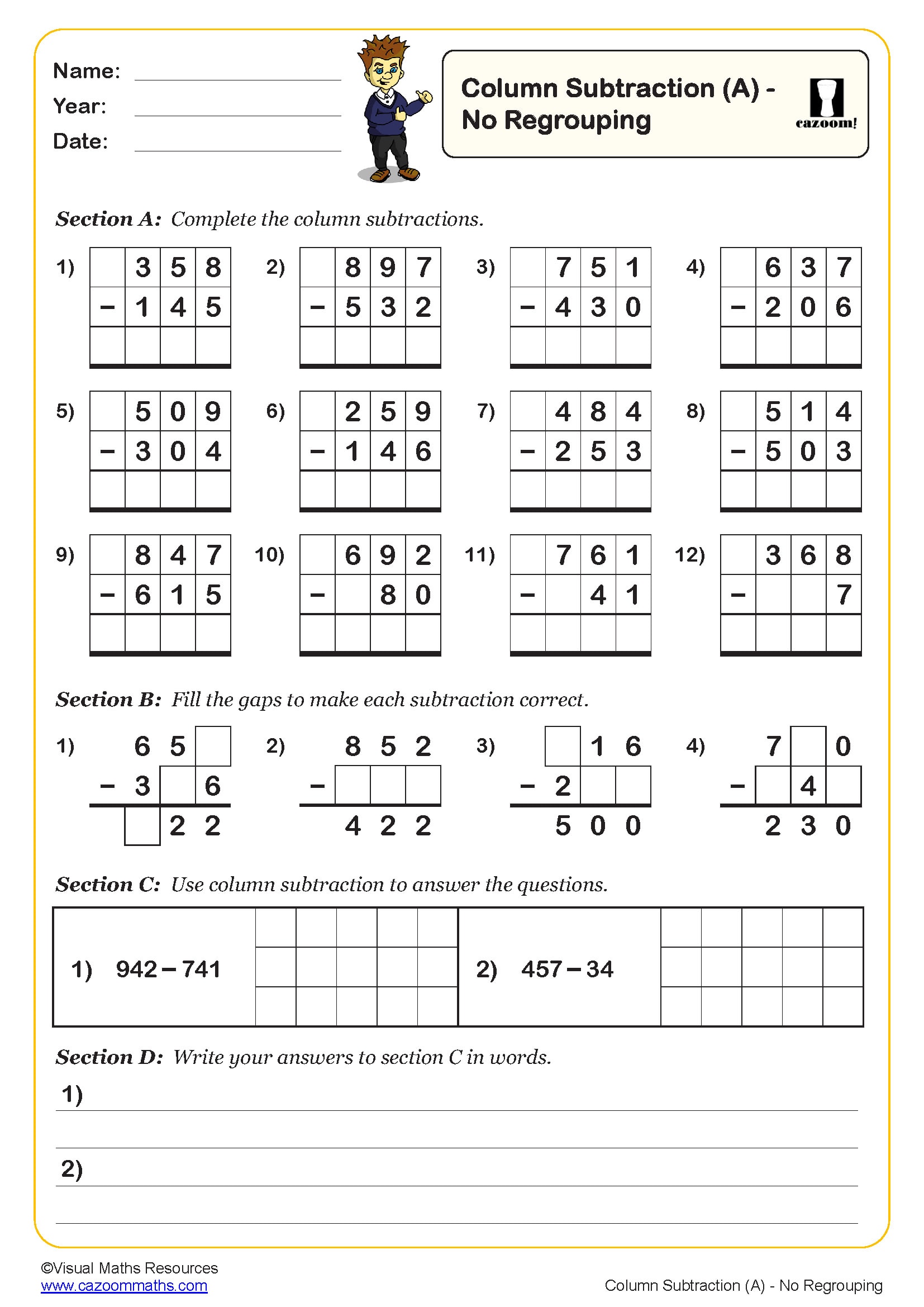
Column Subtraction (B)
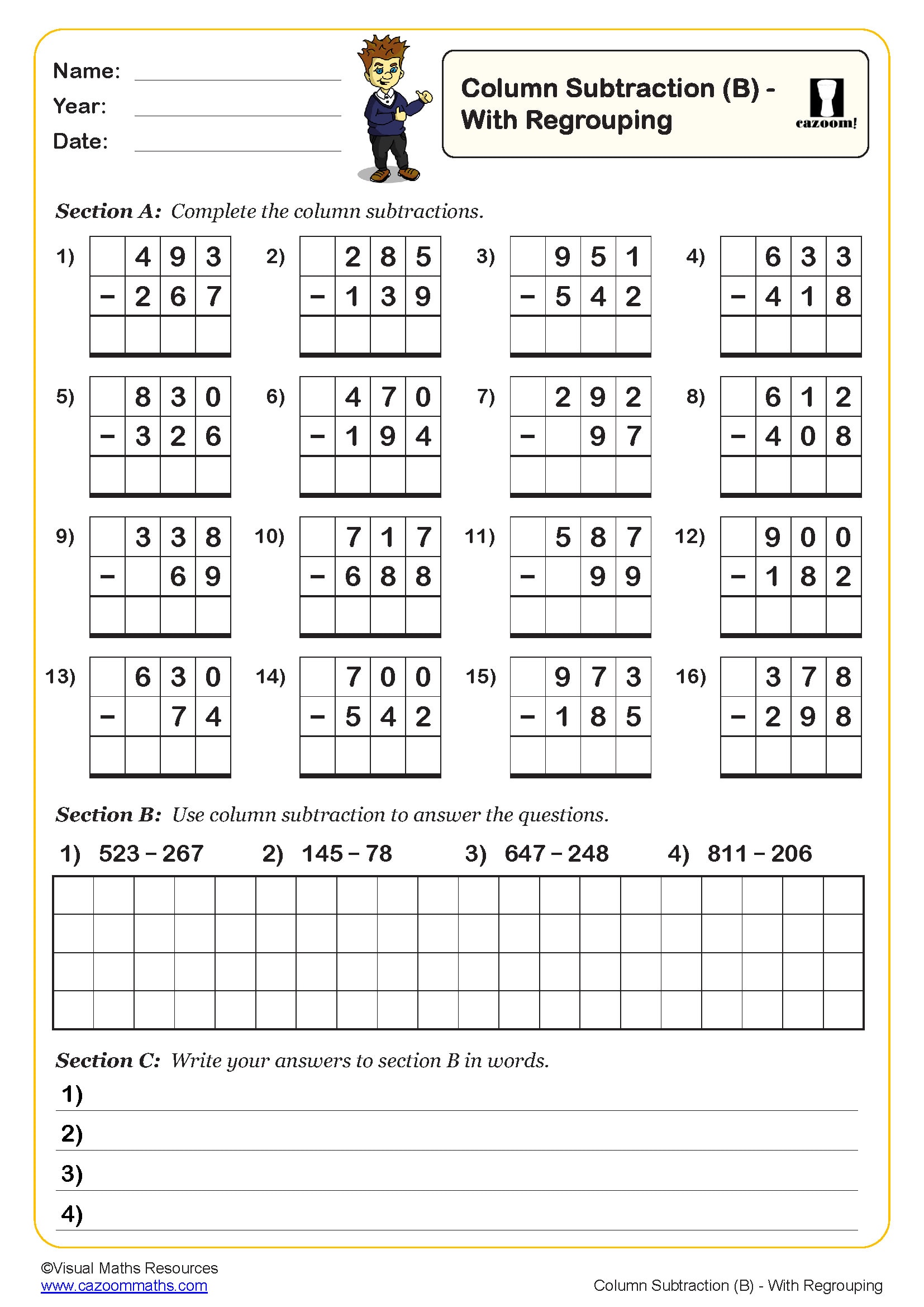
Column Subtraction (C)
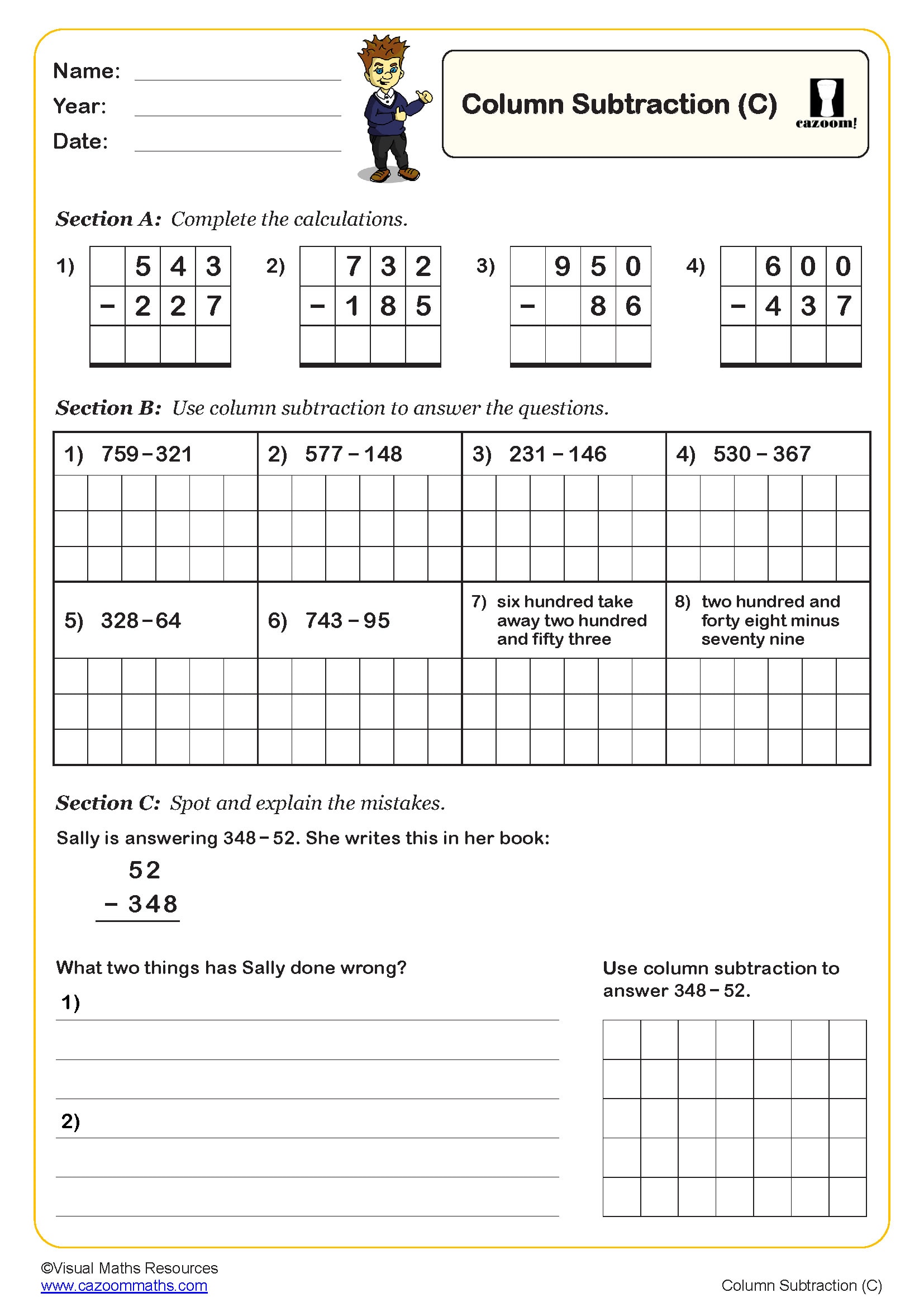
Subtracting Ones from 3 Digit Numbers (With Exchanges) - Using Number Lines
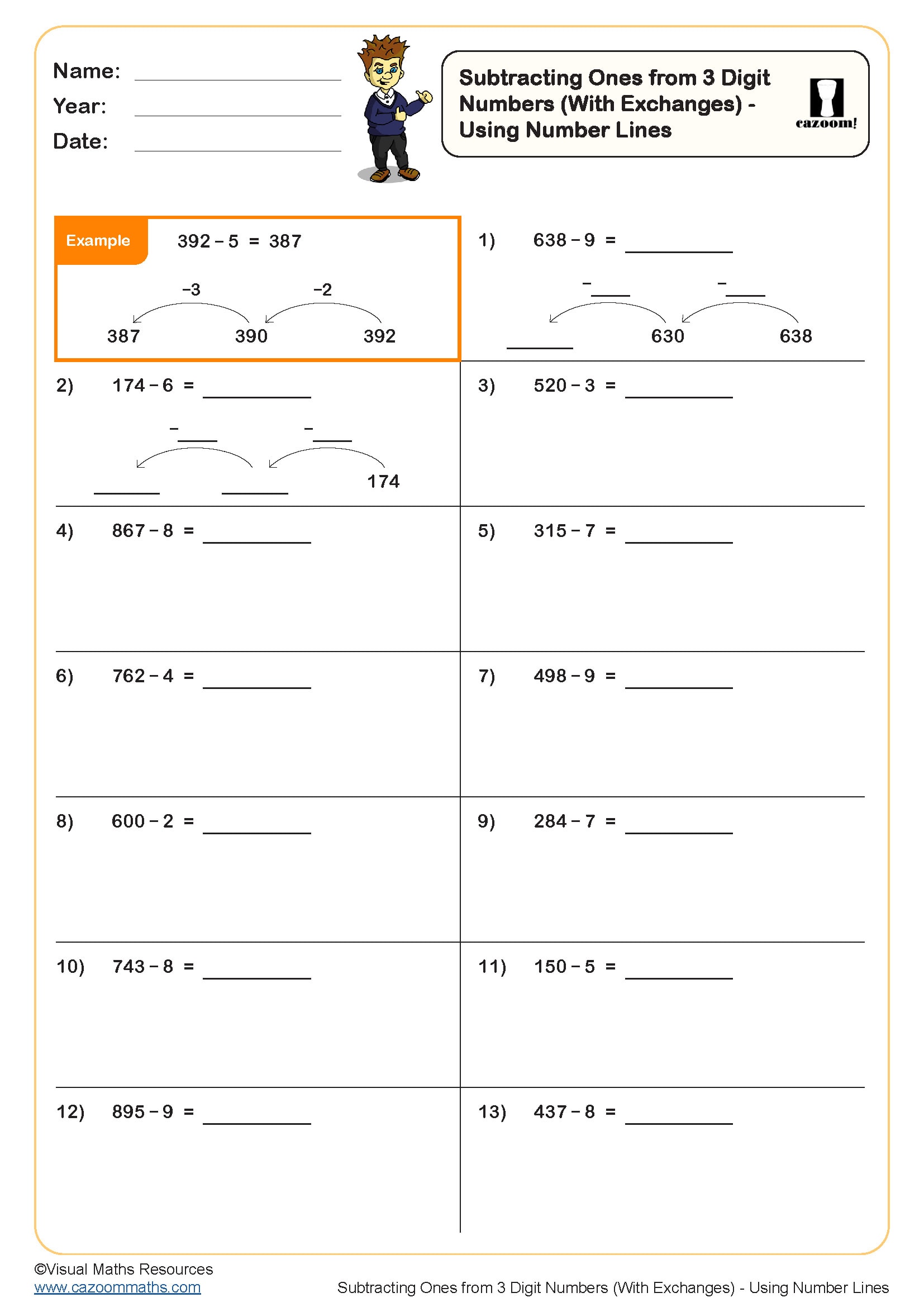
Subtraction Wheels - Subtracting Ones from 3 Digit Numbers (No Exchanges)
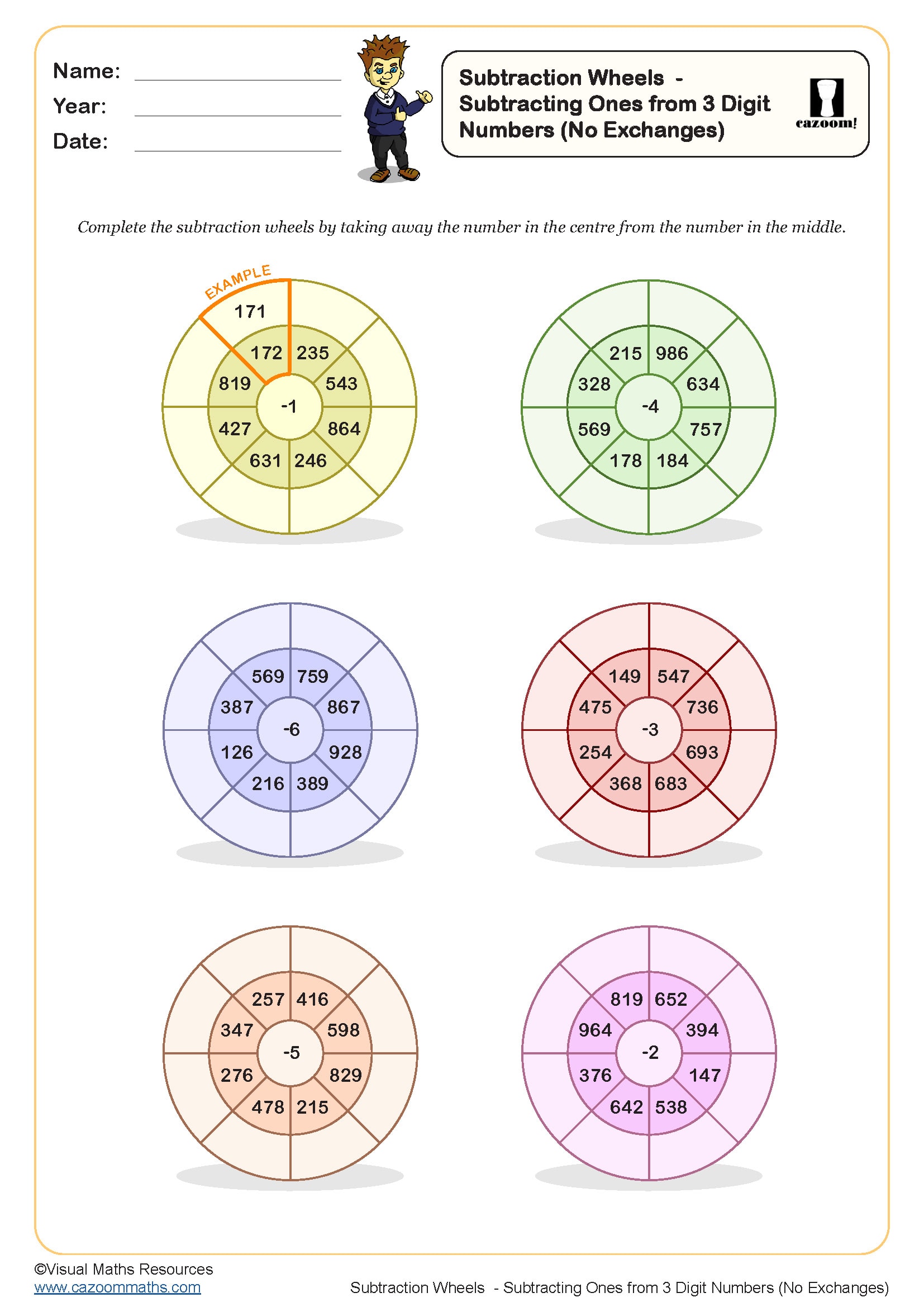
Subtraction Wheels - Subtracting Ones from 3 Digit Numbers (With Exchanges)
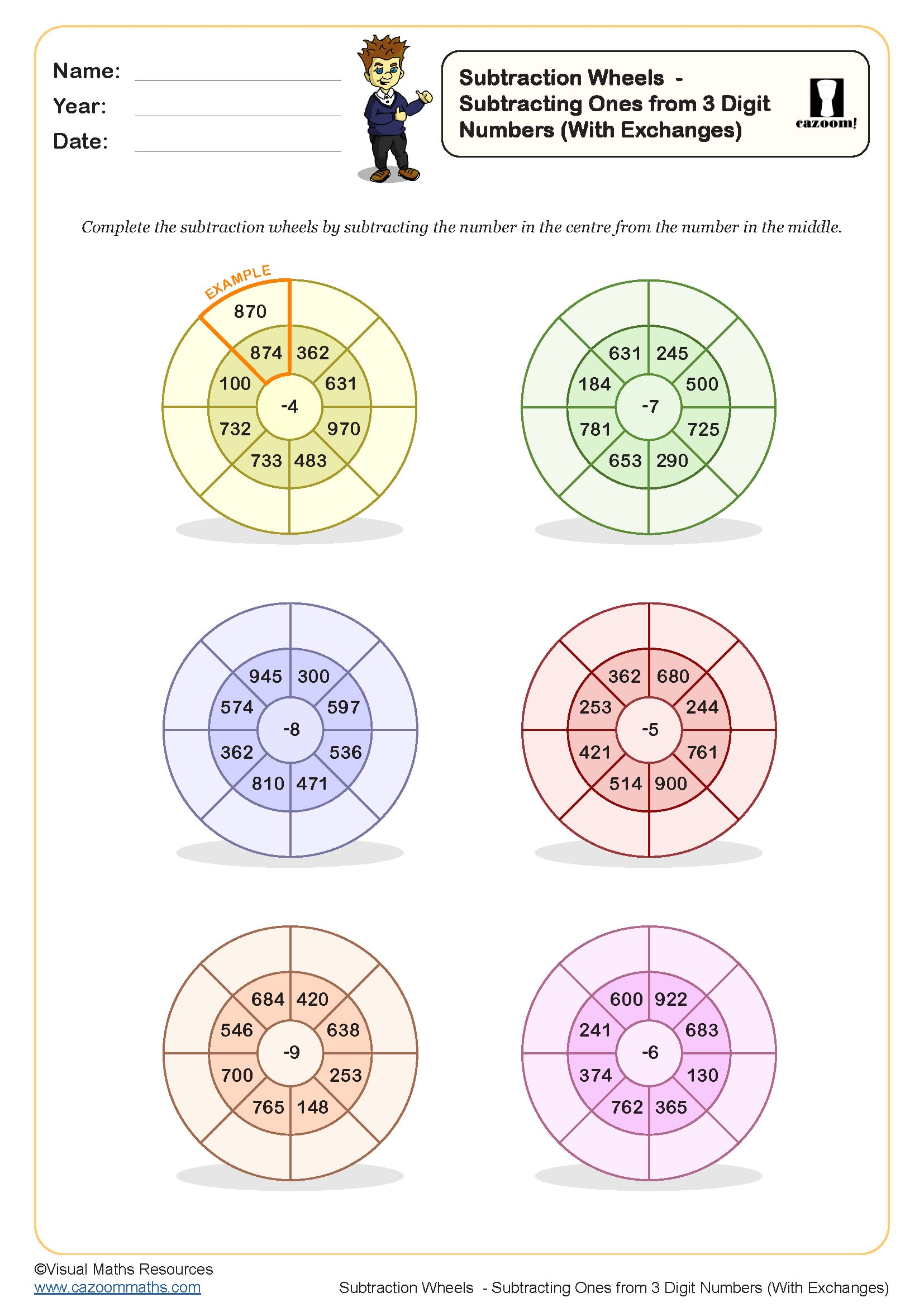
Subtraction Wheels - Subtracting Tens from 3 Digit Numbers (No Exchanges)
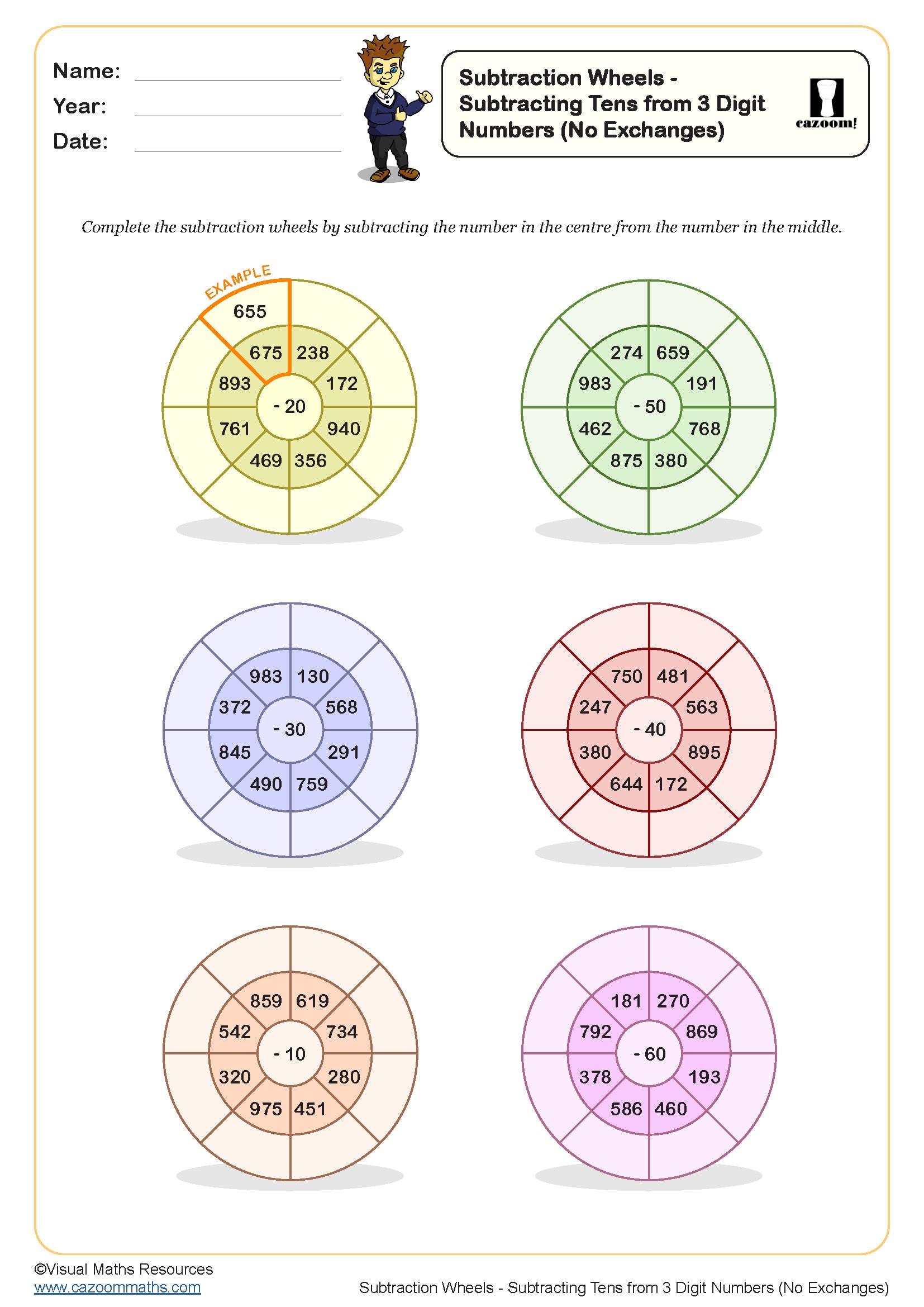
Subtraction Wheels - Subtracting Tens from 3 Digit Numbers (With Exchanges)
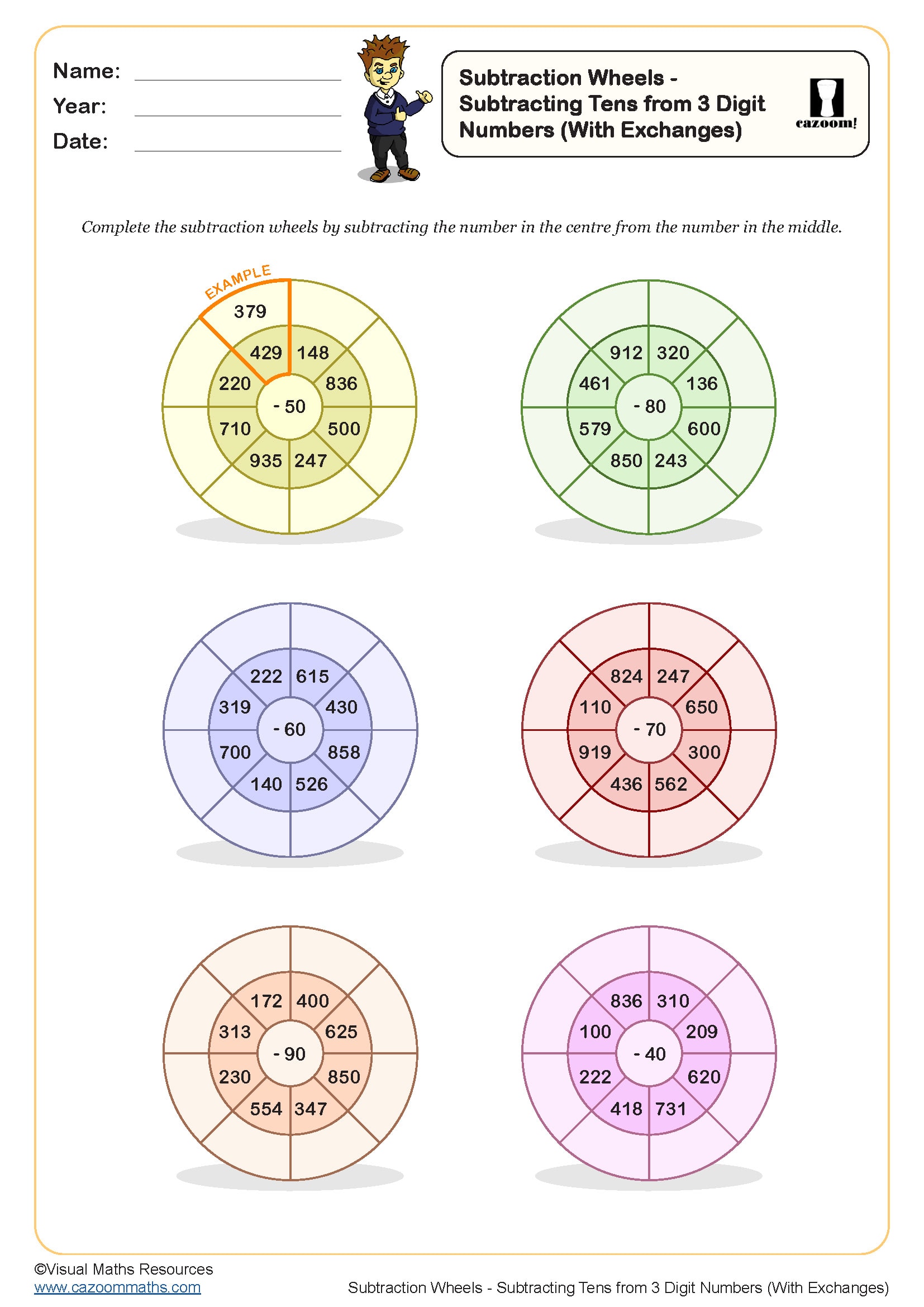
Subtraction Wheels - Subtracting Hundreds from 3 Digit Numbers
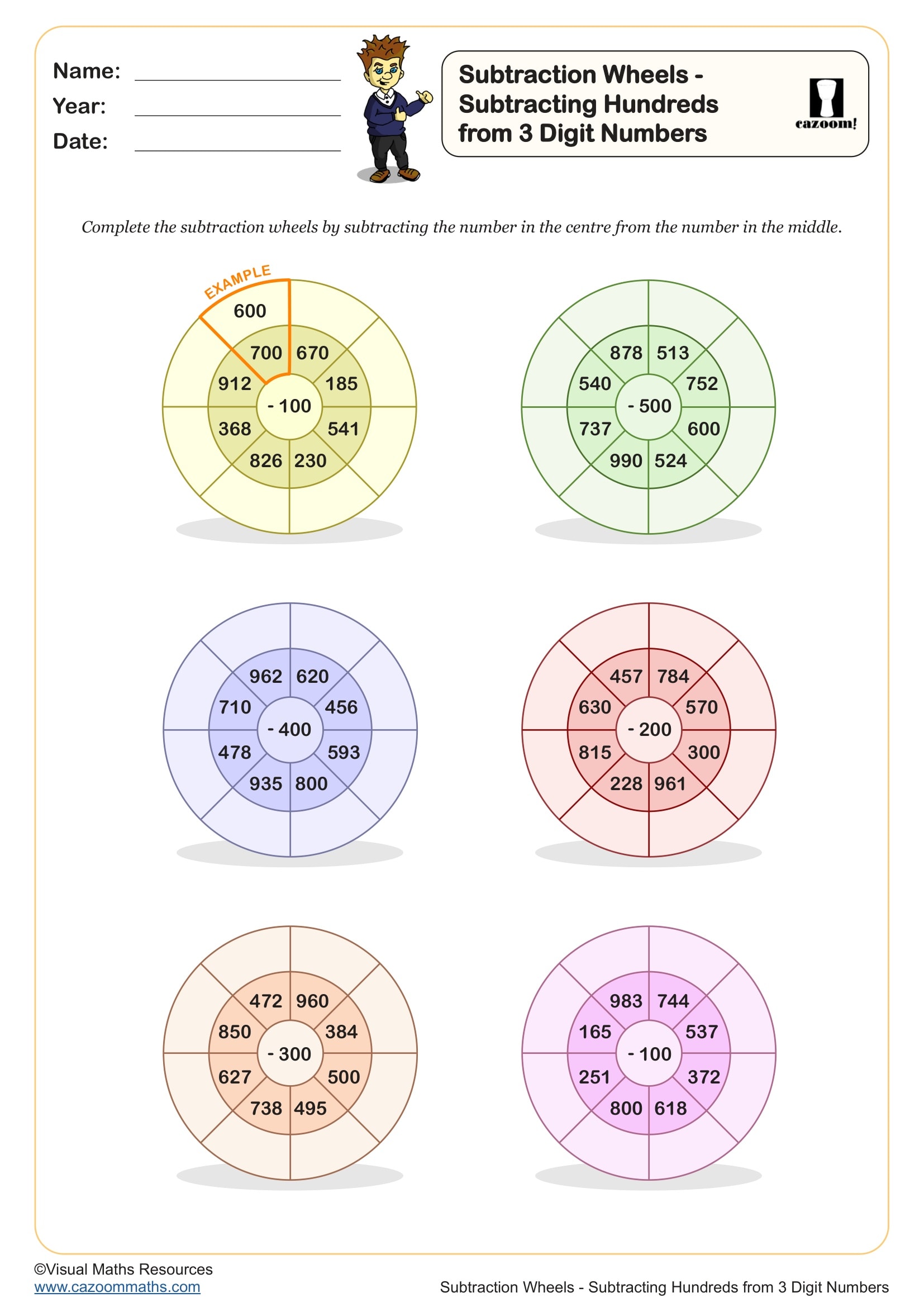
All worksheets are created by the team of experienced teachers at Cazoom Maths.
Advanced Column Subtraction Worksheets - Master Written Methods
Our KS3 subtraction worksheets feature comprehensive worked solutions that demonstrate proper mathematical reasoning, not just final answers. We have designed these materials to bridge the crucial transition from concrete manipulatives to abstract calculations. Each worksheet is created in ready-to-use, printable PDF format and helps build confidence through graduated difficulty levels, making them invaluable for homework assignments, targeted intervention, and reliable cover lesson resources.
Progressive Subtraction Skills - From Mental to Written Strategies
Your Year 3 Students advance from confident mental subtraction through to challenging 3-digit calculations involving multiple exchanges. The progression mirrors National Curriculum expectations while maintaining engaging, accessible content. Teachers consistently report that the mixed problem formats keep the primary school students motivated, particularly the real-world contexts that demonstrate mathematical relevance beyond the classroom environment.
Essential Practice for Year 3 Mathematical Development
Through extensive research and classroom observation, we've discovered something quite significant - students who engage with regular, high-quality subtraction practice demonstrate dramatically improved mathematical fluency and confidence. These structured worksheets provide the deliberate practice necessary for developing automaticity in written methods (absolutely crucial for those upcoming Year 4 challenges). The systematic approach directly supports SAT preparation while building genuine conceptual understanding, which is what we're really after.
Research-backed classroom advantages:
• Strengthens mental calculation strategies up to 1000
• Develops fluency in formal written subtraction methods
• Enhances mathematical reasoning through multi-step problems
• Builds confidence for Year 4 multiplication and division concepts
• Supports differentiated teaching across mixed-ability classes
Real-World Mathematics - Where Students Apply Subtraction Skills
Your KS2 children will be able to apply these skills when calculating distances on school trips, determining time differences between events, or working out remaining pocket money after purchases. These connections make mathematical learning meaningful and memorable, creating those satisfying "lightbulb moments" we all treasure as educators.
Practical subtraction applications include:
• Budget management and calculating the remaining money from allowances
• Sports score differences and tournament league table calculations
• Time intervals between lessons, activities, and important events
• Recipe adjustments and ingredient quantity modifications in cooking
• Distance calculations during geography and outdoor learning activities
• Scientific data analysis and measurement comparisons in investigations